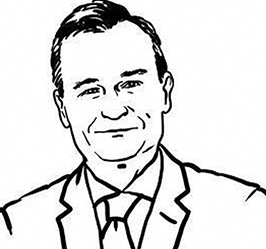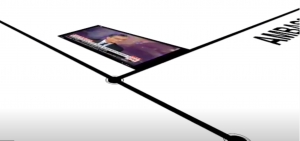Outlines
French diplomacy is playing a role more and more important in United States
29 August 2021
British diplomacy is less and less existing in Washington, as the British are locked into managing the Brexit. While French diplomacy plays an increasing role in American foreign policy.
While Gérard Araud is about to retire as French ambassador to the United States, after consideration, he agrees with Donald Trump on the arm wrestling launched against China. However, under his presidency, tensions between Teheran and Washington have continued to escalate …….
The British are nowhere to be seen in Washington as they become increasingly insular and obsessed with Brexit, according to the outgoing French ambassador to the US.
Gérard Araud, the outspoken 66- year-old who has been Paris’s man in Washington since 2014, can barely contain his glee over the growing French influence on US foreign policy.
“The UK has vanished,” said Mr Araud. “The British ambassador told me — and I loved it — that every time the British military is meeting with the American military, the Americans are talking about the French.”
Mr Araud could not be politically further removed from Mr Trump. “I’m a Marxist 1.0,” he said, wryly. “I was educated in the 60s.”
But as he left his mansion in the swanky neighbourhood of Kalorama Heights for a life of retirement in New York with his partner, the photographer Pascal Blondeau, Mr Araud reflected that Mr Trump was right about lots of things — including his willingness to take on China.
“We have been whispering for a decade that the Chinese were cheating, that they were stealing our intellectual property and that they were closing their market,” said Mr Araud. “And we have done nothing.”
Even so, Mr Trump is a “primitive and brutal” politician whose “rhetoric is out of control”, Mr Araud told the Financial Times. On Iran, the diplomat sided clearly with the rest of Europe in opposing the Trump administration’s steady drip of punitive measures against the regime.
Mr Araud accused the Trump administration of launching “inflated accusations” against Iran, lacking in “diplomatic ingenuity” and not having a clear policy beyond “repeating one hundred times” that the Obama-era nuclear deal was the “quote unquote, worst deal ever”. Mr Trump unilaterally pulled the US out of the deal last year.
“There is no quid pro quo to what the Americans are offering, they want to simply bring the Iranians to begging,” said Mr Araud. “I’m not sure that’s going to work.”
Known in the US capital for a freewheeling style of Twitter- based diplomacy unusual among the more staid diplomatic statements of his peers, Mr Araud got into trouble with Paris for writing that a “world collapses before our eyes” in a swiftly deleted tweet on the night of Mr Trump’s election.
He has since become more sanguine about Mr Trump, whom he views as a populist leader no different to those emerging across Europe, and said that he did not believe in a “liberal world order” in any case.
« It was a western dominated world order,” said Mr Araud. “The liberal order simply means that in western Europe we have not had a war since 1945. What we are seeing is a rebalancing of the world at our expense,” said Mr Araud. “The US will remain the main power, but its relative power has diminished. China is back.”
He was willing to entertain Mr Trump’s decision to withdraw troops from Syria, a move widely interpreted by allies as the US abandoning its diplomatic interest in Middle East; it was understandable given the lack of US “strategic interests” in the region, he said. Even Mr Trump’s suggestion that the US should not feel compelled to defend Montenegro, a small Nato ally, was “the right question”.
Tension remains between France and the US, and Mr Araud’s successor will not have an easy ride. There is a long list of disagreements between the EU and the US, of which the decision to pull the US out of the Iran nuclear deal is just one. There are struggles over trade and climate change, and France is facing US ire over a tax clampdown on technology giants such as Google operating in the EU.
Last month, French finance minister Bruno Le Maire proposed a 3 per cent levy on the turnover of large tech companies.
Technology companies’ attempts to avoid paying tax in countries where they have no property were “outrageous”, said Mr Araud. “The tech companies are screaming in the corridors of the Hill, and in the White House, saying the French are stealing American money. And the US is moaning.”
Mr Araud said serving as an ambassador in the age of Mr Trump had been “an incredible experience”, and a “test case of what happens in a liberal democracy when a populist leader is elected”.
He attributed the election of Mr Trump in part to the 2008 global financial crisis, the shockwaves of which he argued were still reverberating around US and European politics. The focus on reducing immigration, too, he argued, was similar to the demonisation of immigrants in Europe after 1929.
“Americans have seen their income stagnating for years,” said Mr Araud. “Hundreds of billions of dollars have gone to the financial sector but there was not one banker in jail. And then as soon as 2010 the bankers’ bonuses are back. In France, people were told they could not have a few million for hospitals and people were saying, ‘well, you have billions for the bankers’. There is a feeling that the system is rigged.”
And he added: “The people who voted for Trump, and the yellow vests [protesters in France], and some of the people who voted for Brexit — they are all saying ‘enough is enough’.”
Would you like to organise a conference on international current affairs or book a lecture with Gérard Araud?
Contact : Jean-Michel Dardour on + 33 (0) 6 88 09 09 79 or fill in the contact form here-below.




